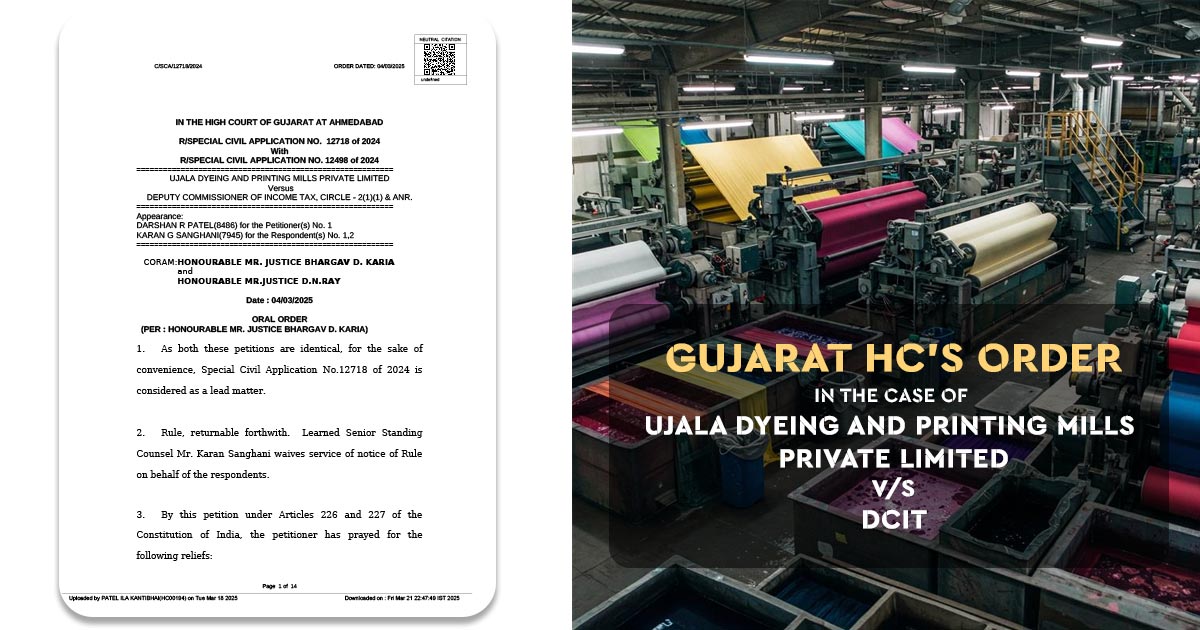
The Gujarat High Court handled a case in which the applicant, Ujala Dyeing and Printing Mills Private Limited, made an error in its income tax return filed on September 24, 2018, while claiming a tax refund of ₹38,08,115.
In column 23, the applicant has incorrectly revealed the disallowable expenses rather than the wrong columns 15 and 18 of the return. An intimation by Centralised Processing Centre (CPC) has been issued dated September 3, 2019, citing the mismatch with the tax audit report.
The applicant has received the intimation post due date to file the revised return, which was March 31, 2019, which has passed earlier. The applicant answering CPC’s intimation has submitted a corrected return dated September 6, 2019, revising the column error at the time, the total income remained the same.
After that, the applicant, in filing the corrected return under Section 119(2)(b) of the Income Tax Act, 1961, has applied for the condonation of the delay. The tax authorities have rejected the same application, coercing the applicant to ask for recourse from the Gujarat High Court.
The claim presented to the HC on behalf of the applicant was that the error was a misclassification of disallowable items in the return columns, without any impact on the actual tax liability or rendering any revenue loss.
The rejection of the condonation of delay application u/s 119(2)(b) yields genuine hardship of the applicant, as an influential refund was being cut due to the only procedural mistake.
The court analysed the provisions of Section 143(1)(a) of the Act and the Centralised Processing of Returns Scheme, 2011, which specifies the procedure to manage the differences in the tax returns. CPC fetches the error and asks the applicant to answer, the court observed.
Since the petitioner filed a corrected return upon discovering the error after the deadline for revised returns, the court deemed the rejection of the condonation application unjustified. HC outlined that the mistake was technical and does not impact the tax subject to be paid or refundable.
Therefore, in the applicant’s favour, the Gujarat High Court has ruled quashing the order u/s 119(2)(b) and asking the respondents to process the rectified return as per the statute, thereby permitting the genuine refund claim of the applicant to be acknowledged.
| Case Title | Ujala Dyeing And Printing Mills Private Limited vs. DCIT |
| Case No. | NO. 12718 of 2024 |
| For the Petitioner | Darshan R Patel |
| For the Respondent | Karan G Sanghani |
| Gujarat High Court | Read Order |